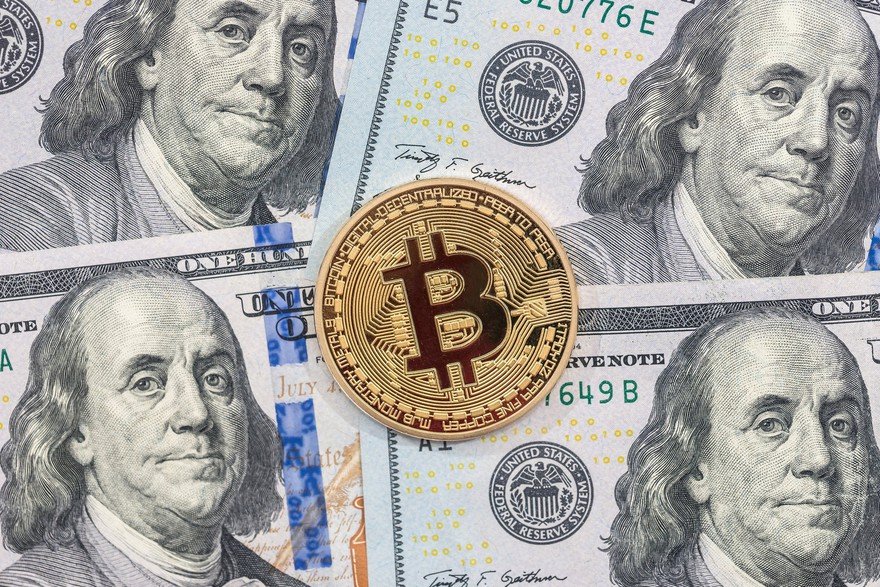Historically, the stock market has been the greatest creator of wealth. Including dividend reinvestment, U.S. stocks tend to return an average of 7% annually, which works out to doubling your money every decade.
But there's a new type of asset that pays out dividends: cryptocurrency. Here's how it works.

What are blockchain or crypto dividends?
Blockchain describes blocks of digital information about transactions that are stored on a public ledger. For a new "block" to be added to the chain (adding a new unit of currency), the information must first be verified. One of the first mechanisms for creating new blocks of data was "proof of work," and using it is commonly referred to as "mining." Proof of work is a cryptographic puzzle that needs to be solved for a new block to be created, awarding the solver with a new unit of digital currency. Bitcoin (CRYPTO:BTC), Litecoin (CRYPTO:LTC), and Bitcoin Cash (CRYPTO:BCH) all use the proof-of-work system. Historically, mining new blocks has been a lucrative way to make money in the crypto universe.
However, some cryptocurrencies now pay a "reward," often called a cryptocurrency dividend -- sometimes passively for simply holding the digital currency in a digital wallet and sometimes for taking a specific action. These rewards aren't like stock dividends, which are paid from the excess cash a company generates. Payouts can vary, sometimes being calculated daily or monthly, and they are dependent on the trading volume on a cryptocurrency exchange -- which makes them a variable type of passive income.
Another crypto reward comes from "staking" tokens. Staking tokens is an alternative to mining new blocks of a cryptocurrency. Owners of cryptos can "stake" their coins (basically, lock them up in their digital wallet) for a chance to be randomly selected to create new blocks in the blockchain. The reward is generally based on a number of factors such as the number of coins owned, how long they've been staked in a digital wallet, and the total value of the cryptocurrency in question. Ethereum (CRYPTO:ETH) migrated from a mining system to "proof of stake."
Additionally, a new concept has emerged in blockchain rewards: the "bividend," or a dividend paid in Bitcoin. The penny stock company BTCS (NASDAQ:BTCS) announced it would pay its shareholders a dividend of $0.05 per share payable in Bitcoin, an idea that has garnered interest from crypto investors and that could eventually spread to other companies involved in developing blockchain technology.
One important point to bear in mind is that rewards paid on cryptocurrencies (as well as digital currency obtained by mining) are, on average, more variable than dividends on company stock -- but sometimes pay a higher yield. Crypto rewards are also taxable as ordinary income. By contrast, dividends paid on most company stock are taxed at the long-term capital gains rate. This means most investors will pay a higher tax rate on cryptocurrency dividends.
Three blockchain or crypto stocks for dividends
This concept of earning dividends from a digital currency may be new, but there are also ways to earn passive income through dividends from companies making use of blockchain technology. Here are three to consider:
1. CME Group
CME Group (NASDAQ:CME) is one of the world's largest exchanges for financial instruments. It's best-known for options, futures, and other derivatives contracts on a diverse mix of things from basic agricultural goods to stock indexes to currencies and interest rates. In 2017, CME announced an exchange for options on Bitcoin, and, in early 2020, it expanded to futures contracts on Bitcoin. Most recently, it announced that futures on Ether (the token on the Ethereum network) would be available starting in February 2021 -- bringing risk-management tools to the world's most recognizable cryptocurrencies.
Besides giving you an ownership stake in a leading global financial assets exchange (one with a history of slow and steady growth since market trading volume averages higher over time), CME stock also pays out a dividend. As of this writing, the company pays $0.85 per share each quarter, good for an annual dividend yield of 1.8%. And, from 2011 to 2020, the quarterly payout increased more than 200%, not including a number of special one-time payouts to shareholders, including a special $3.25-per-share payout in January.
2. Mastercard
Mastercard (NYSE:MA) needs little introduction since it makes up a virtual duopoly with rival Visa (NYSE:V) in handling the global digital payments industry. Since Mastercard specializes in digital transactions, cryptocurrency is a natural fit. And, as the use of digital currency has risen, so has the payment company's investment in new projects. In 2019, it announced a partnership with blockchain software firm R3 to develop a new cross-border transaction system. It has also begun partnering with crypto firms to allow the issuing of debit and other payment cards, allowing users to convert their cryptocurrency holdings into a fiat currency (issued by a government) to make purchases.
This stock also pays a dividend, which was $0.40 per quarter as of mid-January (an annual yield of 0.5%). It may not look like much, but the payout was a lowly $0.015 per share each quarter back in 2011 (adjusted for a 10-for-1 stock split in 2014). Additionally, Mastercard rewards shareholders by repurchasing its stock. In December 2020, it authorized a $6 billion buyback program, worth about 1.8% of Mastercard's market cap as of this writing. With digital payments only increasing in importance, Mastercard remains a viable means of betting on a digital future.
3. IBM
Former tech bellwether IBM (NYSE:IBM) has seen better days. The stock has been stuck in neutral for a decade now, virtually unchanged from where it was at the end of 2010 to the time of this writing. However, while the old computing company adjusts to the cloud computing era, it's also making bets in other areas, including blockchain. It's partnered with software start-ups and banks to launch the cryptocurrency Anchor, and it has a business division to help organizations around the world make use of blockchain in their own operations.
Although there have been far better places to invest in the stock market over the past decade, IBM has steadily paid dividends for a long time. The quarterly payout was $1.63 per share as of mid-January (for a 5.1% annual yield), more than double the 2011 payout of $0.75. Also, the company is planning to spin off its legacy managed infrastructure business by the end of 2021, leaving the new IBM leaner and more focused on next-gen technology such as cloud computing and blockchain.
Of course, the preceding stocks are far from pure-plays in cryptocurrency. Nevertheless, all three could be big beneficiaries if blockchain technology and cryptocurrencies continue to increase in prevalence and use -- which, in turn, could boost their dividend payouts. For investors looking for passive income from digital currencies, they deserve to be part of the conversation.

























